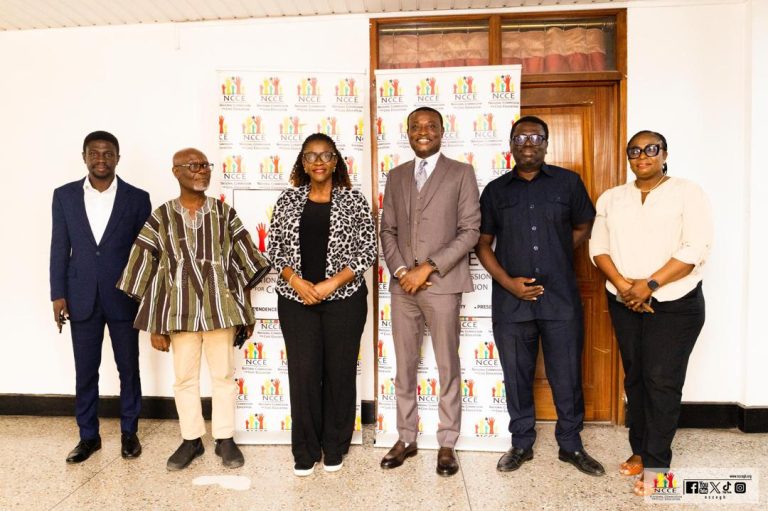In a bold step to tackle corruption head-on, the Office of the Special Prosecutor (OSP) has joined forces with the National Commission for Civic Education (NCCE) to reinforce the national push for anti-corruption through public education.
The strategic meeting to discuss the new relationship between the two institutions took place on Thursday, April 3rd, 2025, in Accra.
The Special Prosecutor, Mr. Kissi Agyebeng, led the OSP delegation. He spoke about the importance of preventing corruption through civic education.
Kissa Agyebeng explained that beyond investigations and prosecutions, the OSP is deeply committed to reshaping public attitudes and instilling a culture of integrity across all levels of the Ghanaian society.
With the NCCE’s widespread presence across Ghana’s districts and communities, Mr. Agyebeng expressed confidence in the Commission’s ability to drive this awareness campaign at the grassroots level.
He indicated that an OSP/NCCE collaboration is a necessary tool to ensure citizens understand the real cost of corruption and how they can contribute to eradicating it.
NCCE Chairperson, Ms. Kathleen Addy, warmly welcomed the partnership.
She said the Commission is ready to use its nationwide platforms to engage citizens on ethical leadership and accountability.
Also present at the meeting were key officials from both institutions, including Mr. Samuel Appiah Darko, Director for Strategy, Research, and Communications at the OSP, and NCCE’s Deputy Chairpersons Samuel Asare Akuamoah (Operations) and Victor Brobbey (General Services), along with other senior Commission officials.
The discussions also touched on the growing problem of vote-buying and vote-selling, which both sides agreed that it should be tackled long before election seasons.
Both the OSP and NCCE pledged to explore strategies for mobilizing resources to scale up their outreach efforts.
These programs will aim to empower citizens with knowledge of their civic duties and encourage them to resist all forms of corruption, especially at the local level.
The National Commission for Civic Education (NCCE), established under the NCCE Act, 1993 (Act 452), is tasked with promoting civic awareness and defending Ghana’s Constitution.
Its core functions include creating public awareness of constitutional principles, encouraging citizens to protect the Constitution against abuse, and formulating civic education programs at national, regional, and district levels.
The Commission also implements initiatives to instill civic responsibility and understanding of citizens’ rights and duties. Additionally, it assesses democratic challenges caused by social inequalities and advises government on corrective actions.
The NCCE may also perform other functions as directed by Parliament to support democratic governance.

